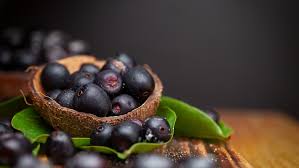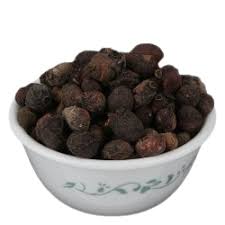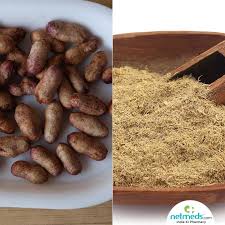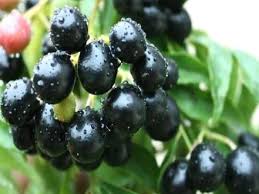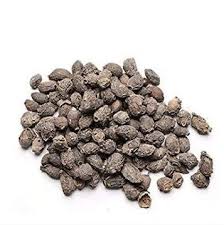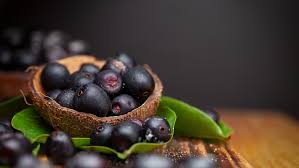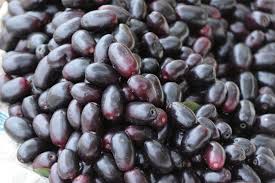
Natural Remedies: Halim Seedsus for Allergy Relief
Allergies—whether seasonal, food-related, or environmental—are increasingly affecting people of all age groups. From runny noses and sneezing to skin rashes and digestive discomfort, allergic reactions disrupt daily life and lower immunity. While conventional antihistamines offer temporary relief, many are now turning to natural and Ayurvedic alternatives for long-term management. One such powerful remedy from traditional Indian medicine is Halim seeds, also known as Garden Cress Seeds or Chandrashoor in Ayurveda.
At Dirghaanshi, we bring you the ancient secrets of natural healing. In this article, we explore how Halim seeds can offer safe and effective relief from allergy symptoms—backed by tradition and emerging science.
✅ Long Description
🌿 What Are Halim Seeds?
Halim seeds are the small, reddish-brown seeds of the Lepidium sativum plant. These seeds are commonly known as:
Chandrashoor (Sanskrit)
Halim (Hindi)
Asaliya (Gujarati)
Aliv (Marathi)
Used for centuries in Ayurveda and folk medicine, Halim seeds have been valued for their immunity-boosting, anti-inflammatory, antimicrobial, and detoxifying properties.
Rich in essential nutrients like vitamin C, iron, flavonoids, and omega-3 fatty acids, these seeds are particularly known to enhance respiratory health and reduce allergic inflammation, making them ideal for managing seasonal allergies, sinus issues, and skin flare-ups.
🌿 Understanding Allergies and Their Triggers
Allergies are caused by an overactive immune response to otherwise harmless substances like:
Pollen (hay fever)
Dust mites
Animal dander
Certain foods (like nuts, dairy)
Insect stings
Mold
Chemical exposure
The immune system releases histamines, which cause inflammation and symptoms like:
Sneezing, coughing, watery eyes
Skin rashes, eczema, or itching
Digestive issues like bloating and cramps
Asthma or wheezing
Addressing allergies naturally involves strengthening immunity, reducing inflammation, and detoxifying the body. Halim seeds support all three processes.
🌿 Nutritional Composition That Helps Combat Allergies
Halim seeds are nutrient-dense and act as a natural antihistamine and anti-inflammatory agent.
Key nutrients include:
Vitamin C – A powerful antioxidant that stabilizes mast cells and reduces histamine release
Iron & Folate – Support oxygen transport and cell repair
Flavonoids – Plant-based antioxidants with strong anti-inflammatory effects
Alkaloids & Glucosinolates – Fight microbial triggers of allergies
Omega-3 Fatty Acids – Help lower inflammation and soothe irritated tissues
Fiber – Improves gut health, which is linked to allergy response
This nutritional profile allows Halim seeds to balance immune responses and minimize allergic flare-ups naturally.
🌿 How Halim Seeds Help Relieve Allergies
✅ 1. Natural Antihistamine Action
Halim seeds are rich in vitamin C, which prevents the release of histamines in the body. This helps reduce common allergy symptoms like sneezing, itching, and watery eyes.
✅ 2. Anti-inflammatory Support
Flavonoids and omega-3s in Halim seeds help reduce inflammation of the respiratory tract, skin, and digestive lining, bringing comfort in conditions like asthma, eczema, and hay fever.
✅ 3. Boosts Immune Function
Allergies are often the result of immune hypersensitivity. Halim seeds help modulate immune responses, reducing overreaction to allergens while enhancing the body’s natural defense system.
✅ 4. Improves Gut Health
Leaky gut and poor digestion often worsen allergic reactions. The high fiber content in Halim seeds supports a healthy gut, which is essential for preventing food allergies and intolerance.
✅ 5. Detoxifies the Body
Halim seeds act as a natural detoxifier, helping eliminate toxins and allergens from the bloodstream and liver, which reduces the burden on the immune system.
🌿 Ayurvedic View on Halim Seeds for Allergies
In Ayurveda, allergies are often linked to imbalances in Kapha and Vata doshas, causing mucous buildup, respiratory congestion, skin flare-ups, or poor digestion.
Halim seeds are considered:
Ushna Virya (hot potency) – Helps balance Kapha and reduce cold-related symptoms
Deepana (digestive stimulant) – Enhances Agni (digestive fire) and eliminates Ama (toxins)
Rasayana (rejuvenative) – Nourishes tissues and strengthens immunity
They are traditionally used in formulations for:
Shwasa (asthma)
Kasa (cough)
Twacha Roga (skin disorders)
Allergic rhinitis or hay fever
🌿 Scientific Research Supporting Halim Seeds in Allergy Relief
Several modern studies support the traditional use of Halim seeds in managing inflammation and allergic responses:
- Journal of Herbal Medicine (2020):
Lepidium sativum extract showed strong anti-inflammatory and antioxidant properties, reducing allergy-related inflammation in lab models. - Indian Journal of Natural Products (2021):
Demonstrated that Halim seed oil suppressed mast cell degranulation—a key trigger in allergic reactions. - International Immunopharmacology Study (2022):
Found flavonoid-rich seeds like Halim can downregulate allergic cytokines and modulate the immune system.
These findings validate Halim seeds as a natural, side-effect-free remedy for allergies.
🌿 Best Ways to Use Halim Seeds for Allergy Relief
✅ 1. Halim Detox Drink (Daily Use)
Soak 1 tsp Halim seeds in water overnight. Add tulsi leaves and a drop of lemon juice in the morning. Drink on an empty stomach to boost immunity and reduce allergic inflammation.
✅ 2. Halim Kadha (Herbal Decoction)
Boil Halim seeds with ginger, tulsi, black pepper, and cinnamon. This kadha is especially effective for respiratory allergies and sinus issues.
✅ 3. Halim + Honey Paste
Make a paste of soaked Halim seeds and mix with 1 tsp raw honey. Take before bed to soothe the throat and manage cough.
✅ 4. Halim Ladoo
Combine Halim seeds with jaggery and ghee to make energy-rich ladoos that also support digestion and immunity.
✅ 5. Topical Use for Skin Allergies
Mix Halim seed powder with aloe vera gel and apply to itchy or inflamed skin areas. It soothes redness and provides relief from eczema-like symptoms.
🌿 Dosage and Safety Guidelines
Recommended dosage: 1–2 teaspoons daily (preferably soaked)
Best taken on an empty stomach for absorption
Not recommended in high quantities during pregnancy
Those with ulcers or gastritis should consume it with ghee or milk
Always consult an Ayurvedic expert if taking medication for chronic allergies or asthma
🌿 Who Should Consider Halim Seeds for Allergy Relief?
Halim seeds may benefit people suffering from:
Seasonal allergies (pollen, dust)
Asthma or bronchitis
Skin allergies like eczema, psoriasis
Sinusitis and nasal congestion
Food sensitivities
Weak immune system or frequent cold
🌿 Combining Halim Seeds with Other Herbs for Maximum Benefit
To amplify the allergy-fighting effects of Halim seeds, combine them with:
Tulsi (Holy Basil): Antiviral and respiratory support
Ginger: Natural anti-inflammatory and expectorant
Triphala: Detoxification and gut healing
Ashwagandha: Immunity and stress modulation
Neem: Skin detox and blood purification
At Dirghaanshi, we recommend holistic remedies that synergize traditional herbs with practical health goals.
🌿 Additional Natural Tips for Allergy Management
✅ Practice Neti (nasal irrigation) with warm saline water
✅ Use steam inhalation with eucalyptus or tulsi oil
✅ Drink herbal teas with ginger, mulethi, or chamomile
✅ Maintain a Kapha-reducing diet: light, warm, and digestive
✅ Avoid cold, fried, and dairy-heavy foods during allergy seasons
✅ Conclusion
Halim seeds are not just a nutritional supplement—they are a potent Ayurvedic remedy for allergy relief. Whether you’re struggling with seasonal hay fever, skin allergies, or respiratory congestion, these tiny seeds offer holistic healing without the side effects of chemical antihistamines. Their antioxidant, anti-inflammatory, and immune-balancing properties make them an excellent natural ally in your allergy-fighting arsenal.
At Dirghaanshi, we advocate for safe, herbal, and time-tested remedies rooted in our traditional wisdom. With consistent use, Halim seeds can help reduce allergic symptoms, restore balance, and improve your overall well-being.


